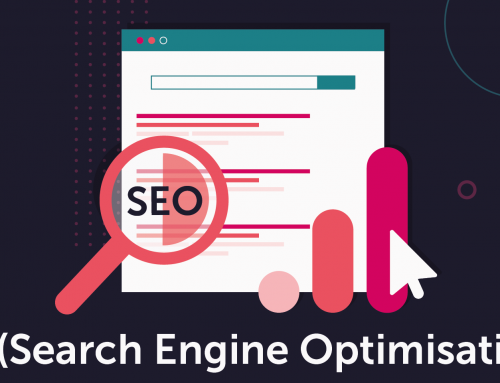SEO. SERP. EAT. So many acronyms, but what do they all mean?
Search engine optimisation (SEO) is the process of improving your website’s visibility in search results and, in turn, driving more traffic towards your site and business. The purpose of an effective SEO strategy is to make it as simple as possible for search engines to understand and verify the information you provide.
Google is by far the most dominant search engine, comprising over 70% of all desktop searches worldwide. It is, therefore, imperative for businesses to understand what factors are considered by Google’s algorithm to rank them higher on search engine results pages (SERP).
When we talk about SEO factors, we’re typically referring to two kinds of optimisation: content and technical. Let’s go into a bit more detail…

Content SEO
It’s all well and good having a flashy website, but no one will see it if it doesn’t appeal to Google’s algorithm. Google judges your site’s credibility and where it sits compared to other relevant web pages based on three signals: expertise, authoritativeness and trustworthiness (or ‘EAT’).
So, content SEO focuses on creating high-quality content to capture the attention of search engines and inform your audience.
Clear copy
High-quality content is all about enhancing the user experience. Strong CTAs, well-written copy and clear headings persuade users to take action and make it easy for search engine bots to establish page intention and relevancy.
Keyword optimisation
You probably already know that keyword research is a big part of SEO. But as the technology used by search engines gets more intelligent, so must your keyword strategy. It’s essential to consider the words you’re using and their placement within sentences and the words surrounding them, as this is all taken into account by algorithms. Just remember you’re writing for humans — not bots. (‘Keyword stuffing’ is still a big no-no.)
Targeted content
Taking note of your customers’ questions and incorporating the answers into your web page will direct the right traffic towards your site, increasing views and conversion rates.
Internal and external links
Whether they’re internal links to other pages of your site or external backlinks to informative, useful content from other trustworthy sources, links help search engines establish your web page’s relevance, legitimacy and authority.
Technical SEO
Technical SEO refers to the ‘backend’ website and server optimisations that will help search engines effectively navigate your site’s data and improve your SERP ranking.
Mobile optimisation
With most of the population using their smartphones every day, it’s essential that visitors can navigate websites seamlessly on both desktop and mobile platforms. In fact, from March 2021, Google’s mobile-first indexing system places mobile compatibility as a top priority for web designers and SEO experts, making it all the more important for your website to be consistent across all devices.
Loading speed
If your webpage takes more than two to three seconds to load, your ranking on Google may be penalised. Search engines know that a website optimised for reduced loading times is preferable to audiences and will adjust your SERP position accordingly.
Infrastructure and tags
Search engine-friendly website structure relies on a network of well-built, high-functioning links, which allow for seamless communication between bots and your website. Additionally, clear title labels, header tags and meta descriptions complete with keywords are all integral to what makes a website optimised for search engines — and makes a website easier for visitors to navigate.
Schema markup
Schema markup is a structured data vocabulary that explains your content to Google and improves the way it reads, understands, and represents your page in SERPs — serving up rich results and boosting your page ranking.
Safety
With more than six in 10 companies suffering ransomware attacks in 2020 and cyber-crime on the rise, the credibility of websites is an important consideration for search engines. Websites with an ‘HTTPS’ address are favoured as they’re considered more secure, meaning that your website may be penalised without this certification.
SEO is essential for your business to grow
Google is constantly implementing algorithm changes that will impact your SEO strategy. Some are tiny and may go undetected in the short term, but it’s crucial to stay on top of them to avoid falling behind in the long term.
If you haven’t optimised your site using these content and technical strategies, your website will fall further and further down the rankings. And considering only 0.78% of Google searchers click through to results on the second page, that spells bad news for your business…
The world of SEO is constantly changing. And it can be pretty challenging to keep up with the most current best practices, guidelines, and Google algorithm updates — all while overseeing the many other aspects of your business’s digital marketing strategy. If you’re looking to get onto the front pages of Google and remain there, get in touch to discuss how we can get your SEO strategy up and running.










